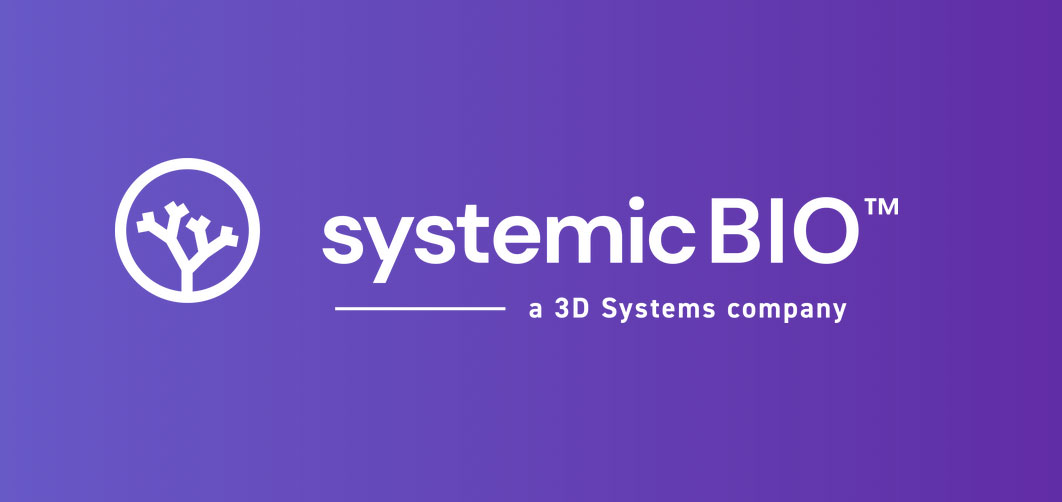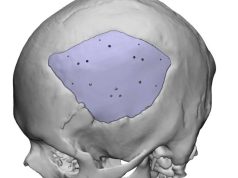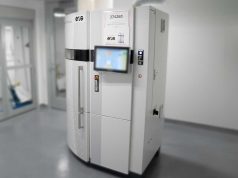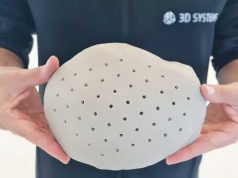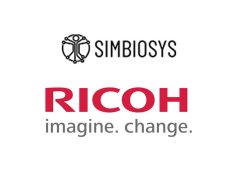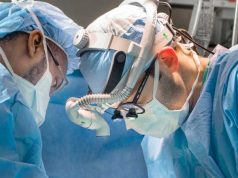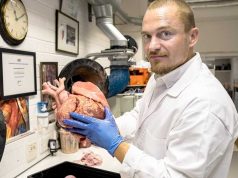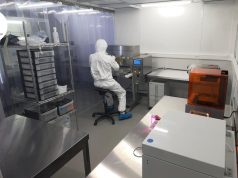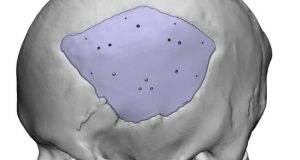3D Systems (NYSE:DDD) announced the formation of a new, wholly owned company called Systemic Bio, a biotech company focused on the application of advanced bioprinting technologies to pharmaceutical drug discovery and development. Systemic Bio will leverage 3D Systems’ breakthrough, production-level bioprinting technology to create extremely precise vascularized organ models using biomaterials and human cells.
These proprietary organs-on-chips can be manufactured reproducibly in large quantities, and then perfused with any desired drug compound to study drug metabolism and the effects on healthy or diseased tissue at the earliest stages of new pharmaceutical drug development. The ability to accurately simulate human response to an experimental drug in the laboratory, early in the development process, offers the potential to significantly reduce both the high costs and extended times required for pharmaceutical companies to bring a new drug to market. In addition, this approach could eventually reduce or even eliminate the need for animal testing as a precursor to full-scale human trials for new drug development.
Systemic Bio’s efforts will be supported by an initial $15 million seed investment from 3D Systems, which, given the maturity of the underlying materials and process technology, is envisioned to support them through the start-up phase, bridging them to a material revenue level and profitability. Systemic Bio intends to open an exciting new growth market for 3D Systems in the pharmaceutical arena, creating a biotech revenue stream for the company that could approach $100 million annually over the next five years.
3D Systems is a recognized specialist in the use of bioprinting to accelerate innovation in regenerative medicine for both human organ and non-organ applications. In June 2022, United Therapeutics Corporation (NASDAQ:UTHR) announced that, in partnership with 3D Systems, it had successfully produced the world’s most complex 3D-printed object – a human lung scaffold. Systemic Bio will leverage its innovative bioprinting solutions in combination with 3D Systems’ Print to Perfusion process to bioprint highly complex, custom-designed, vascularized tissues for its proprietary organ-on-a-chip platform, called h-VIOS.
The h-VIOS (human vascularized integrated organ systems) organ-on-a-chip platform comprises plates of cellularized or acellular vascularized three-dimensional scaffolds, and accompanying accessories needed for drug testing. Unlike other currently available models which are created from synthetic materials such as silicone, h-VIOS uses hydrogels that much more closely resemble human tissues. The combination of these hydrogels with 3D Systems’ Print to Perfusion process for cellularization, enables 3D printing of high-resolution scaffolds that very closely mimic human tissues. A critical differentiator of this technology over competing historical tissue engineering approaches is the precision of the printing process with these unique hydrogel materials.
These bioprinted scaffolds can be seeded with human cells from different organs, including both healthy and diseased, creating tissues to screen drug candidates for safety and efficacy. This human-based, physiologically relevant platform has the potential to change the way new drug therapies are developed.
Systemic Bio produces these customized chips on its bioprinters at its facility in Houston, Texas. These bioprinters are capable of at least 10x greater build volume and up to 10X higher resolution than other available platforms which enables efficient, production-grade manufacturing. Systemic Bio is now working to establish multi-phase partnerships with pharmaceutical companies that could lead to the discovery of promising new drugs. Beyond providing organ-on-a-chip test samples, pharmaceutical companies may also seek to retain Systemic Bio to provide contract research services in addition to procuring custom-designed h-VIOS to perform their own research and testing.

To lead the new company, 3D Systems has named Taci Pereira as Systemic Bio’s Chief Executive Officer. Ms. Pereira joined 3D Systems in May 2021 from Allevi, where she was Chief Scientific Officer. Since that time, she has served as Vice President and General Manager, Bioprinting, leading the development and commercialization of research tools for 3D bioprinting applications. She holds a Bachelor of Science in Bioengineering from Harvard University, where she worked at the Wyss Institute for Biologically Inspired Engineering. Ms. Pereira’s research at the Mooney Laboratory for Cell and Tissue Engineering (Wyss) focused on biomaterials for cancer immunotherapy, under the advisory of David Mooney, Ph.D.
“As the leader of our Allevi business, Taci brought a unique blend of business acumen and bioprinting expertise that has enabled our continued growth in laboratory solutions,” said Menno Ellis, executive vice president, healthcare solutions, 3D Systems. “Her knowledge, passion, and demonstrated leadership position Taci very well for her new role as CEO of Systemic Bio. I’m confident that the solutions her team delivers can have a transformative impact in the field of pharmaceutical drug discovery and contribute meaningfully to the exciting growth we have envisioned for our healthcare business.”
Dr. Jeffrey Graves, president and CEO of 3D Systems added, “I am pleased and inspired by the progress we continue to make in the emerging field of regenerative medicine. The complexity and precision that we have now demonstrated using biocompatible materials and our most advanced production bioprinting platform technology is truly groundbreaking, opening a host of new applications ranging from the laboratory to replacement organs within the human body. In forming Systemic Bio we are applying these core technologies to specifically address critical needs within the pharmaceutical market. With our potential to ultimately manufacture hundreds or even thousands of custom-designed, proprietary human tissue models, pharmaceutical companies can more rapidly and accurately evaluate the efficacy of developmental drugs in the laboratory, with the goal of reducing development time and eventually eliminating the need for animal testing. By leveraging the progress we have made on our core bioprinting technologies, we are now in a unique position to create this new business — bringing added value to our shareholders, our employees, and, most importantly, to those in need of new, advanced drug therapies to extend, or improve the quality of their lives.”
Systemic Bio is currently offering its h-VIOS platform to select initial partners. For more information about Systemic Bio, please visit their website.
To learn more about 3D Systems, please visit www.3dsystems.com.
Subscribe to our Newsletter
3DPResso is a weekly newsletter that links to the most exciting global stories from the 3D printing and additive manufacturing industry.



